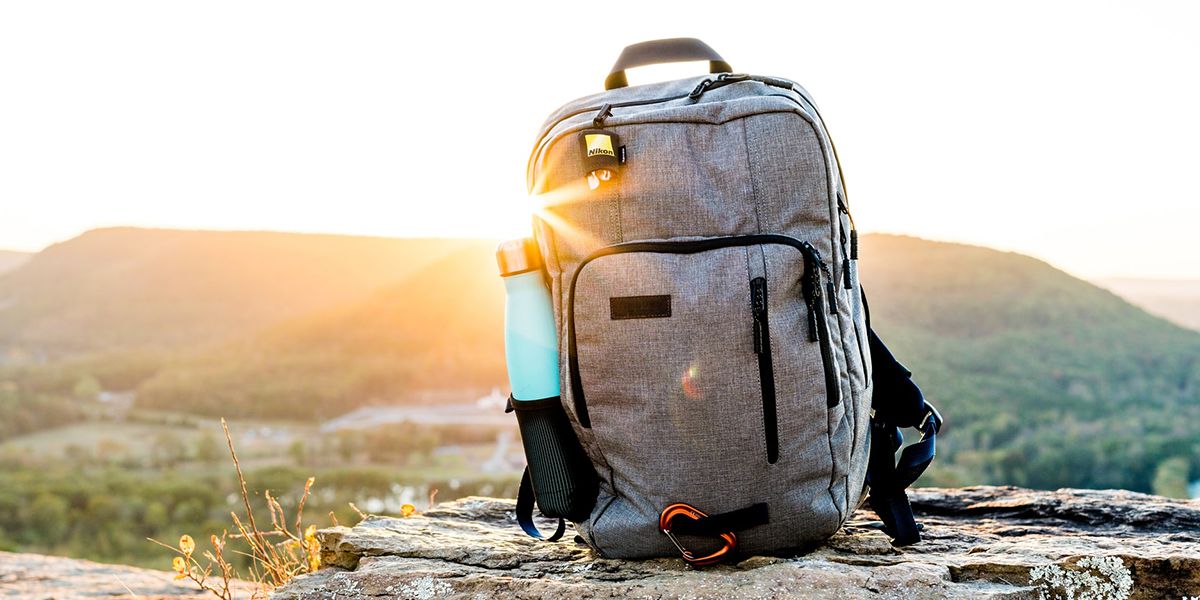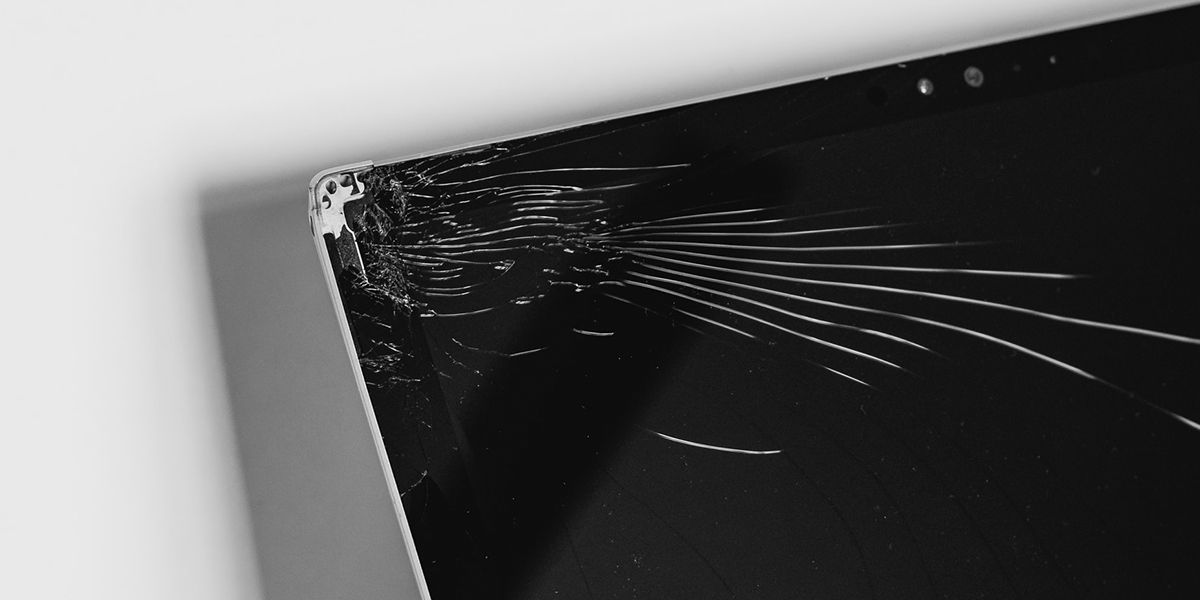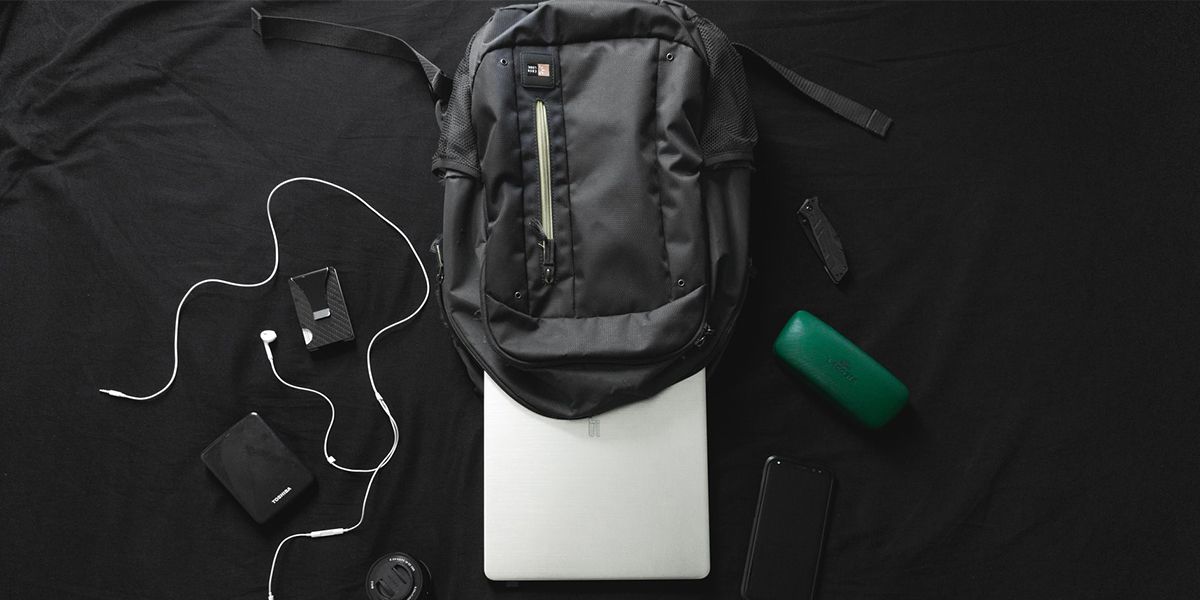Buying a laptop bag seems like a no-brainer: just pick something that looks good. But, if you haven't noticed already, there are three types of laptop bags—backpacks, cases, and sleeves—and all serve different purposes.
End up buying the wrong one, and the next thing you know, you're looking for another one you can actually use. In this article, we will walk you through seven considerations to help you pick the right laptop bag for you and save you from hassle.
Types of Bags Explained
Before we move on, you should understand the different types of laptop bags and what they look like. We've summed this up in a table for you.
|
Backpack |
Sleeve |
Case |
|---|---|---|
|
An everyday backpack with a dedicated laptop compartment, pockets for chargers, and accessories |
Slim neoprene or EVA pouches with zippers. They don't usually have additional pockets for chargers and accessories. |
Usually made of the same materials as a backpack but are shaped like sleeves and come with a carrying handle and additional pockets. |
1. Assess Your Use-Case
Laptop bags solve two problems: they protect your laptop and make it easy for you to carry it around. Ask yourself:
- How much do you travel?
- What is your primary mode of transportation?
- Where do you spend most of your time?
Answer these questions, and you'll know how lightweight, protective, comfortable, durable, and stylish your bag should be.
2. Make Sure It's Easy to Move
Imagine you travel a lot, but you buy a laptop sleeve. It's not thick enough to protect your laptop from drop damage and doesn't have a carrying handle. You have to hold it with both your hands all the time to make sure your computer is safe. Not fun, right?
Your bag should be easy to move around (or carry) in your situation.
- Go with a backpack if you walk and use public transport a lot. It will protect your laptop with the well-padded, dedicated compartment and go easy on your shoulders.
- Buy a laptop sleeve if your movement is minimal and indoors only. It will protect the laptop against dust and minor scratches/abrasions and be easy to manage.
- Get a laptop case if you move between locations infrequently or have private transportation. It will give you the sleekness of a sleeve and the carrying convenience of a backpack (with a carrying handle and shoulder strap).
3. Look Out for Quality and Durability
When you're getting a laptop bag, ensuring its high quality and durability should be one of your top priorities. A bag's quality and durability depend on its material and stitching. Backpacks and laptop cases are made of nylon and polyester, while neoprene and EVA are used for sleeves.
Bags with leather, like the one by Samsonite, are relatively more durable, longer-lasting, and waterproof. The goal is to check for neat stitching and good buyer reviews. It's common for most bags' zippers to fall apart after a couple of months of use.
Buying from known brands, therefore, is a good idea. Although it will cost you more upfront, the bag will last longer.
4. No Compromise on Protection
The main goal of a laptop bag is to ensure that the device is safe. Again, refer to your use case to understand which bag will be the safest for you.
For example, you need a backpack instead of a sleeve if you fear dropping your laptop (maybe because you carry a lot of things or your location is too crowded), as neoprene sleeves cannot provide such protection against drop damage.
For cases with an increased risk of your laptop getting damaged, go with a well-padded bag, like a backpack or a case. The laptop case will be your best bet here, like the one by BAGSMART, as it provides a backpack's protection and a sleeve's portability.
You may also want to consider if the bag is waterproof or not, especially if you commute a lot and you could get caught in the rain.
5. Is the Bag Comfortable?
Ensuring protection for your laptop with well-padded compartments is one thing, and ensuring your shoulder doesn't break down by lifting an uncomfortable laptop bag is another. Laptop backpacks, cases, and sleeves all have different levels of comfort.
Backpacks are at the top, as they usually come with straps made of foam and mesh fabric, which is a very comfortable combination. Your shoulders don't feel the weight, and it's easy to carry the bag without thinking much.
However, cases and sleeves aren't too comfortable when it comes to this. Sleeves usually have no handle to lift them with (as they're not made for too much movement), while cases (which have handles) can be uncomfortable to hold for extended periods.
Again, pick the one that suits your use-case the best.
6. Do You Need Any Special Features?
A laptop isn't the only thing you'll have to carry around in your bag. Depending on what you need, you may also have to take additional accessories (like external mice, keyboards, trackpads, graphic tablets, cables, drives, etc.) alongside.
Going too minimal can be dangerous as you never know when you're going to need a peripheral. For example, always get one with extra pockets for chargers if you're going with a sleeve. Peak Design's V2 bag is a great option.
Other features like earphones and charger holes also come in handy. The idea is to think about the potential features you may need occasionally and try to find a bag that has those.
7. Match It With Your Design and Style
Bags add to your looks. Rugged, professional, or funky: go with the one that suits your style. Most available bags in the market look professional (minimal and dark-colored) as they seem to fit almost all cases.
Utility shouldn't be the sole reason you're choosing a laptop bag. Because then, you might have a bag that won't fit your attire or occasion. For this reason, some users purchase different bags for different moods or events.
And it's not a bad idea. If you decide to go with multiple bags, like having one backpack for traveling and one sleeve for when you're at home, you can better adapt to different circumstances.
It's All About Finding the Right Balance
There will be things you'll have to compromise on, and that's fine. The idea is to find the right balance that fulfills your primary needs: it should be easy to carry, protect your laptop, and suit your style.
Are you outdoors mostly? Well, if so, then a simple backpack might not suffice. Anti-theft bags have carefully designed safety mechanisms to prevent your belongings (like your laptop) from being stolen.




